The Xbox One doesn't need self-publishing indies
Don't be too quick to judge

In the race to accrue the good will of gamers as they transition into the next-gen, Microsoft seems to have shot itself in the foot. I too was aghast that the hour-long Xbox One press conference only had room for a handful of triple-A titles, and even those seemed to take a backseat to TV connectivity and voice-recognition wizardry. So when I read that the Xbox One won't allow self-published games, I hopped on the bandwagon with those who assumed Microsoft was giving the finger to every indie dev out there. But this might not be the greed-fueled, visionary-crushing move you think it is.
I'm not saying that it can't possibly hurt the Xbox One's potential in the long run. The assumption is that Microsoft, which used the XBLA platform to promote many an indie game in past years, is turning its back on the studios who could be making the next big thing in the form of a console downloadable. And without daring, innovative projects to challenge the oft-formulaic nature of big-budget sequels, gaming would crawl forward at a snail's pace. What I am saying is that you ought to reserve your judgments, because only time will tell if this is the Xbox indie extinction event that people seem convinced of. Microsoft--more specifically, Microsoft Studios--has yet to show its hand.
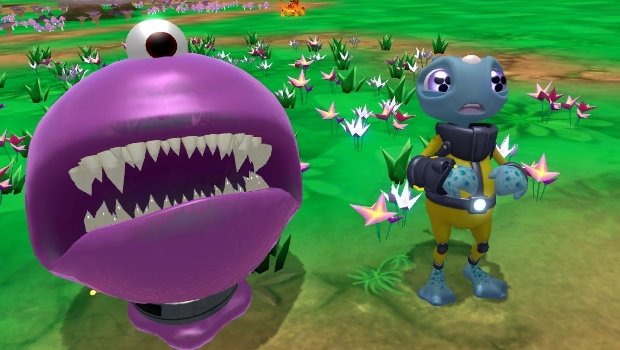
The uncertainty for what lies ahead is just that--uncertainty, where neither good nor bad convictions make much sense. "Just because Microsoft hasn't opened up their platform to be a free-for-all app store, doesn't mean they aren't going to continue courting indies, funding projects, [and] supporting the community," says Michael Wilford, studio director at Twisted Pixel Games. Twisted Pixel is now a part of Microsoft Studios, so take Wilford's comment with a grain of salt. But without the support of Microsoft Studios in years past, oddities like The Maw or 'Splosion Man might've never made it into the limelight.
Christian Meyer, a designer at Capybara Games whose works includes Might & Magic: Clash of Heroes and Superbrothers: Sword & Sworcery EP, has a refreshingly diplomatic stance on the matter. "The impression I have about the Xbox One is that Microsoft isn't ignoring indies, they just haven't gotten around to thinking about them specifically," says Meyer. "Their reveal conference seemed very focused on making a big splash outside of the game space...[but] I'm sure that, in time, we'll hear about Microsoft making a big push to court indies to the Xbox One."
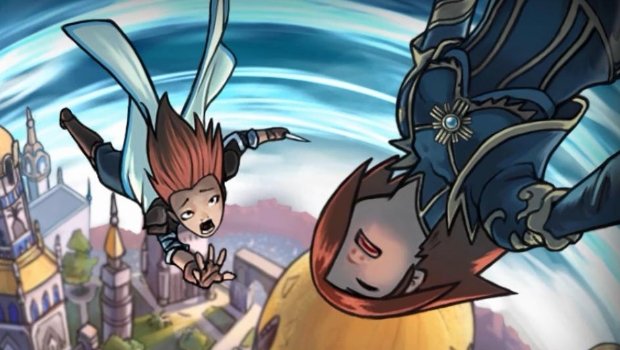
Turning the Xbox One marketplace into a gated community flies in the face of recent efforts from Nintendo and Sony. The Wii U supports the Unity engine and common programming languages like HTML5, while Nintendo's eShop lets developers set their own prices and patch their game free of charge. With the PS4 on the horizon, Sony is making a huge push to be as inviting as possible to indie developers. The newly minted Indie Games section of PSN provides a showcase for the little guys, and the Pub Fund program gives indie studios funding in exchange for timed exclusivity.
But Microsoft has already tried--and ultimately failed--to enable the self-publishing route. Though the 360's Xbox Live Arcade prohibited self-published games, any and all were invited to try their luck in the Xbox Live Indie Games corner of the marketplace. This seemed like a win-win scenario for everybody: developers could get their product on a widespread platform with minimal costs, while gamers could choose from a wide variety of unique, affordable experiences. Sadly, the reality was a jumbled, unorganized mess that exposed flaws in the idea of an indie free-for-all on consoles.
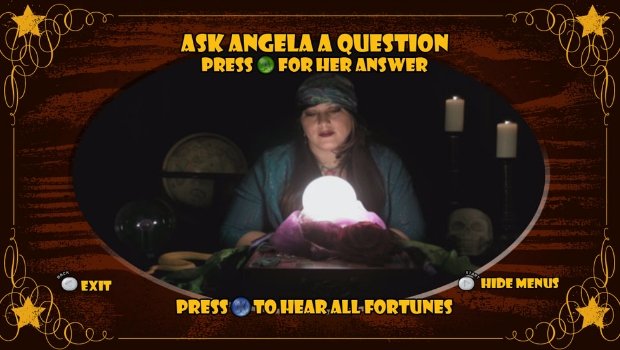
Self-publishing is a gamble. At its core, the idea behind self-publishing is to cut out the middleman--in this case, a video game publisher. The risk is your initial investment; with no company at your back, there's no one to shoulder the costs of developing your game. You also have to do all the promotional legwork yourself. Rewards come in the form of earnings--that is, you keep a much greater percentage of what you make. Money is the bottom line, because even the most avant garde developer needs to turn a profit if they want to sustainably make games for a living. XBLIG should've offered indie devs a chance to get that first foothold in the climb to industry success.
Weekly digests, tales from the communities you love, and more
In short, it didn't. Instead of promoting creativity and diversity, XBLIG devolved into a dumping ground, where quality games got buried beneath dating sims, Minecraft clones, remote-controlled screamers, and Avatar dollhouses. Thomas Steinke, owner of DigitalDNA Games and one of the few XBLIG success stories, has discussed at length how Microsoft's previous self-publishing system created such a toxic indie environment over time. "By putting your game up in front of millions of people, especially with something quirky and a catchy box, you could easily get a few thousand dollars," said Steinke. "If you were savvy, you realized that you were far better off making a 'Crapplication' every two weeks and getting $2000-$5000, than spending two years on a project and getting incrementally more."
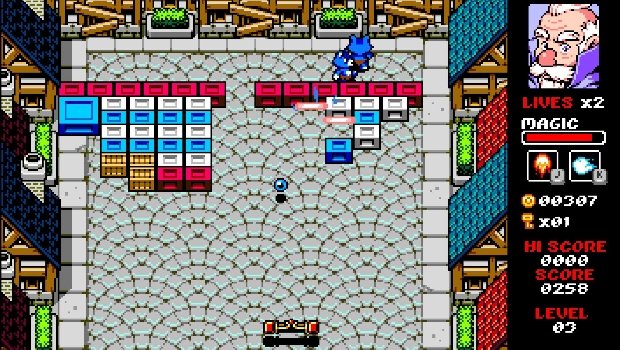
The XBLIG annex of the marketplace will be no more on Xbox One. Talking to Eurogamer, Microsoft corporate vice president Phil Harrison explained that "with Xbox One and the new marketplace...we don't make a distinction between whether a game is a 50-hour RPG epic or whether it is a puzzle game...[they're] just games." Rather than relegate indies to a poorly curated hodgepodge, as with XBLIG, Harrison says that the new marketplace will use "search, recommendation, what your friends are playing, [and] game DVR" to you help you discover the indie games that would most appeal to you.
Word of mouth has always been the most powerful ally to an indie developer; without it, I would've struggled to sift through the XBLIG trash heap to find gems like VolChaos, Escape Goat, and WizOrb. With this new marketplace algorithm, the hope is that the indie cream will still rise to the top by simulating word-of-mouth renown. "We don't give up the ability to put a spotlight on the products that we think are going to be exciting to our user base," states Harrison.
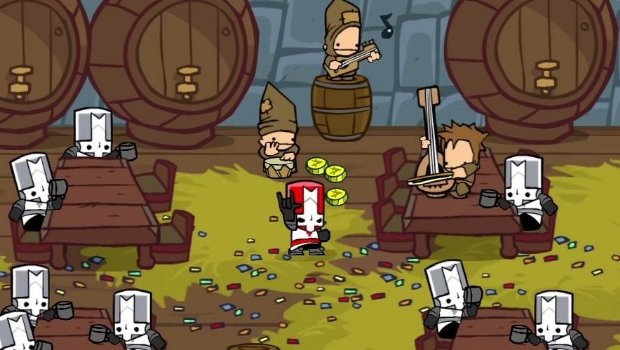
If this renovated marketplace is as new and improved as Harrison claims, then Microsoft Studios will hold the power to vault indies onto center stage. In order to compete with Sony's Pub Fund, the Microsoft-owned publisher will need to make just as strong an effort to court indies to release their game on the Xbox One. Their next-gen endeavors have yet to be revealed, but their track record is full of impressive, hand-picked games which they helped finance and highlight.
Mark of the Ninja, Pinball FX, The Dishwasher, Dust: An Elysian Tail, Castle Crashers--all indie standouts, all made possible in part through funding from Microsoft Studios. It's too early to count Microsoft out of the indie game, because if their endeavor to promote excellent indie games becomes even stronger on the Xbox One, there will be nothing to fear.
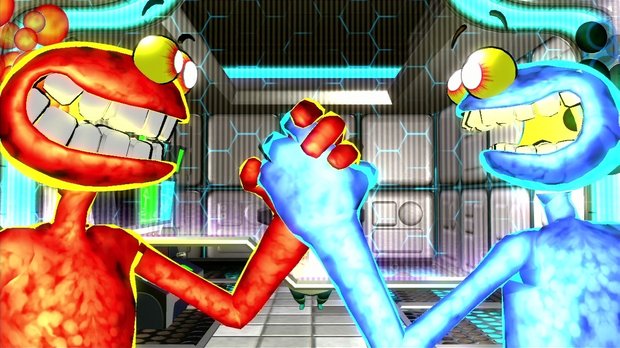
When I read what bigger indie developers have to say about the Xbox One on Twitter, I can't shake the feeling that the people who "made it" are complaining about the lesser profit prospects of the Xbox One. I can't blame them, either; why make games for a system that pays them less for their hard work? But these are the developers who have already found success in the indie community--they've graduated away from being the studios that desperately need help getting their games attention. If Microsoft Studios takes pains to find and support the next wave of quality indie studios, then the future for a thriving indie scene on Xbox One is not in danger. For right now, all we can do is wait and see.
You know that kid at parties who talks too much? Drink in hand, way too enthusiastic, ponderously well-educated in topics no one in their right mind should know about? Loud? Well, that kid’s occasionally us. GR Editorials is a semi-regular feature where we share our informed insights on the news at hand. Sharp, funny, and finger-on-the-pulse, it’s the information you need to know even when you don’t know you need it.
Lucas Sullivan is the former US Managing Editor of GamesRadar+. Lucas spent seven years working for GR, starting as an Associate Editor in 2012 before climbing the ranks. He left us in 2019 to pursue a career path on the other side of the fence, joining 2K Games as a Global Content Manager. Lucas doesn't get to write about games like Borderlands and Mafia anymore, but he does get to help make and market them.



